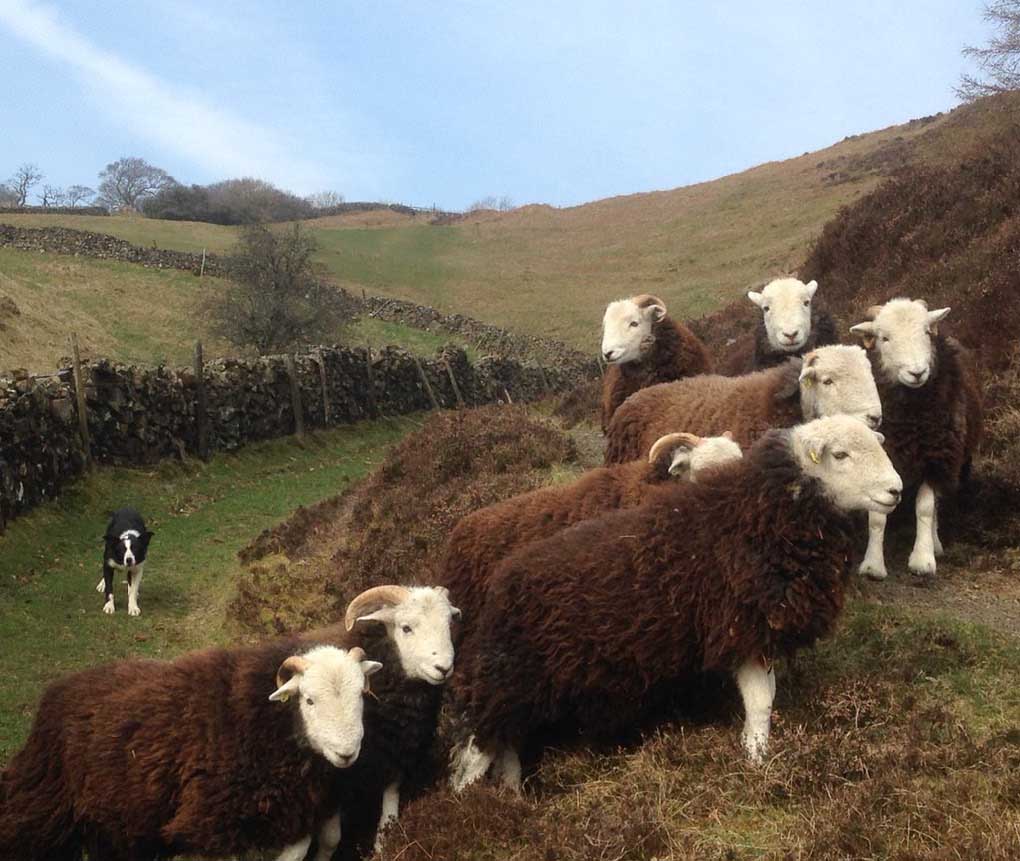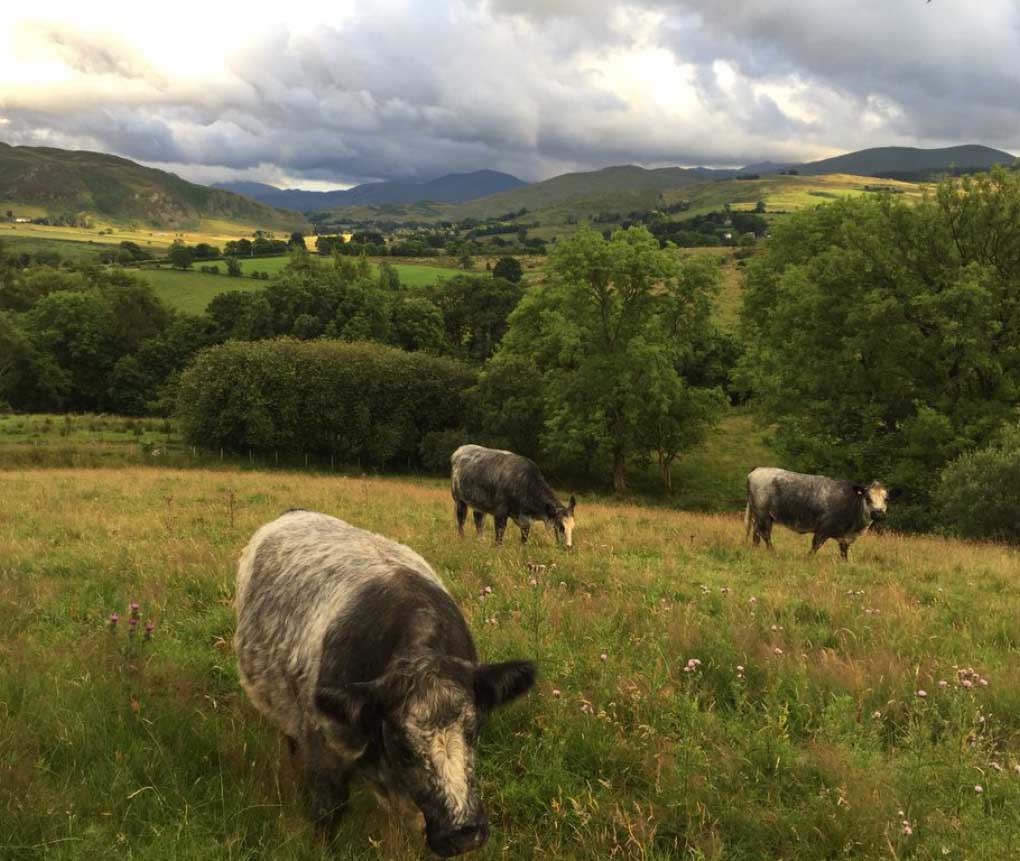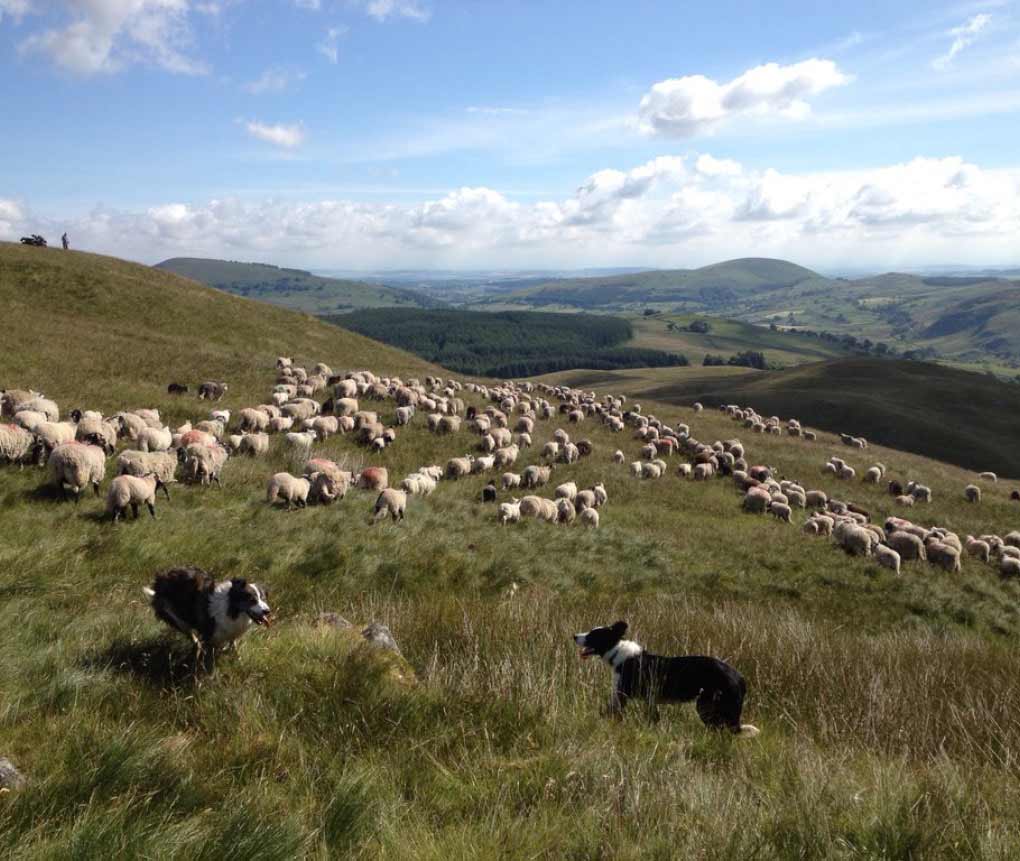
ABOUT
The Lake District is arguably the most literary landscape in the world. Its lakes, mountains, woods, farms and villages have inspired great writing for centuries including 19th-century writers William Wordsworth, Beatrix Potter and John Ruskin. Now a World Heritage Site, The Lake District has been shaped by farmers and people working the land for millennia.
Taking inspiration from these surroundings, the Rural Writing Institute is an immersive and nurturing retreat that gathers seasoned teachers, best-selling authors, and speakers for workshops, discussions, and fieldwork with the aim to encourage diverse perspectives of 21st-century rural life. We provide the time, space, and support to take ideas to a new level and to build an important writing community. There will be time for quiet reflection, strolling in the hills, and learning about shepherding and hill farming.
- Workshops, discussions, and outdoor learning
- Acclaimed guest speakers Adam Nicolson, Amy Liptrot, and Jane Clarke
- Dinners, barn lunches, tea and biscuit breaks
- A supportive network of like-minded writers
Whatever you aspire to write, this is a magical retreat unlike any other in the world. It will give you space, inspiration, and memorable and hands-on learning experiences. We walk to the top of a fell to look out on the Lake District for a talk on the history of nature writing in the area. We rebuild a dry stone wall as we listen to a poet discuss her craft. We listen to acclaimed speakers talk about the rural and nature writing. There will be a range of talks on narrative nonfiction, the history of nature writing, the power of the personal essay, and workshops in descriptive writing, scene creation, and more.
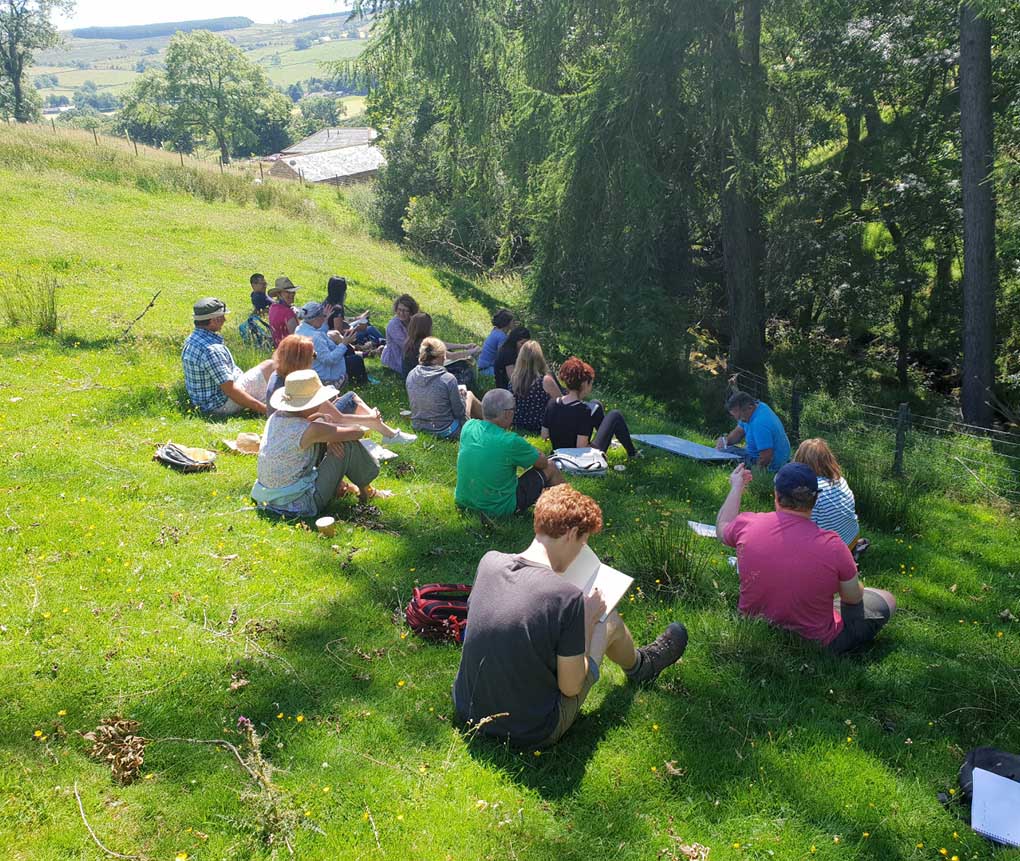
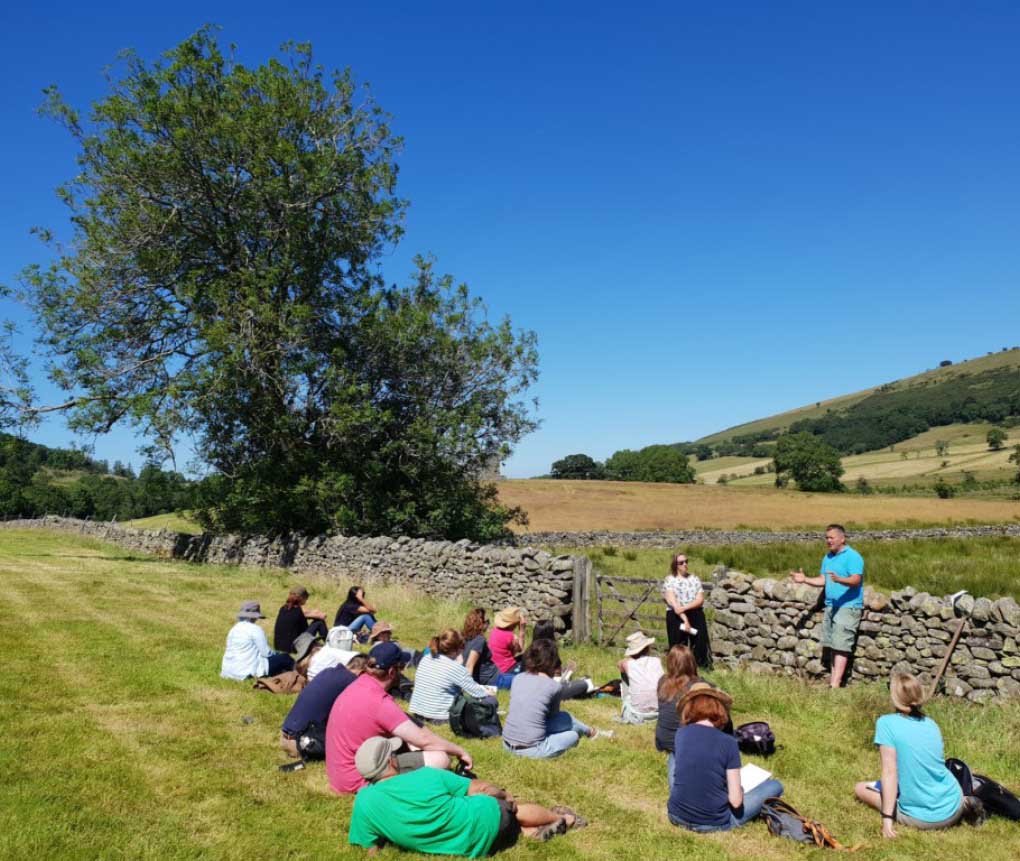
farm & founders
Our four-day retreat is hosted by Helen and James Rebanks on their Cumbrian farm. James is an internationally best-selling author of The Shepherd’s Life: Modern Dispatches from an Ancient Landscape (2015) and English Pastoral: An Inheritance (2020). The Rebanks’ flowering hay meadows, flocks of sheep, herds of Belted Galloways, and ancient woodlands provide rich opportunities for seeing old ways anew and nurturing the mind, spirit, and pen.
RWI co-founder is Kathryn Aalto. She is an American landscape historian, designer, and speaker who lives in Devon. Kathryn is the author of three books: Nature and Human Intervention (2011), New York Times best-seller The Natural World of Winnie-the-Pooh: A Walk Through the Forest that Inspired the Hundred Acre Wood (2015), and Writing Wild: Women Poets, Ramblers, and Mavericks Who Shape How We See the Natural World (2020). She contributes to Smithsonian Magazine, Outside, Sierra, Resurgence and The Ecologist, and other publications.
Helen Rebanks creates beautiful homemade farm lunches and scrumptious tea breaks. Food is locally-sourced with vegan & vegetarian options.
tuition & bursaries
Tuition is £1350 and includes all lectures, drop-in workshops, visiting tutors, farm lunches and dinners, and our Friday night Distinguished Lecture by Adam Nicolson at the Inn on the Lake.
One free bursary goes to an emerging writer age under the age of 25. A half bursary is for a farmer or someone working the land.
accessibility & diversity
RWI is committed to an inclusive and convivial atmosphere where diversity is welcomed in backgrounds, geographies, abilities, and outlooks. Due to the rocky nature of the farm, we regret to say we are not yet 100% wheelchair accessible. We are striving to create work-arounds for future retreats.
Limited to 27 participants. Contact kathryn@kathrynaalto.com for an application and information.
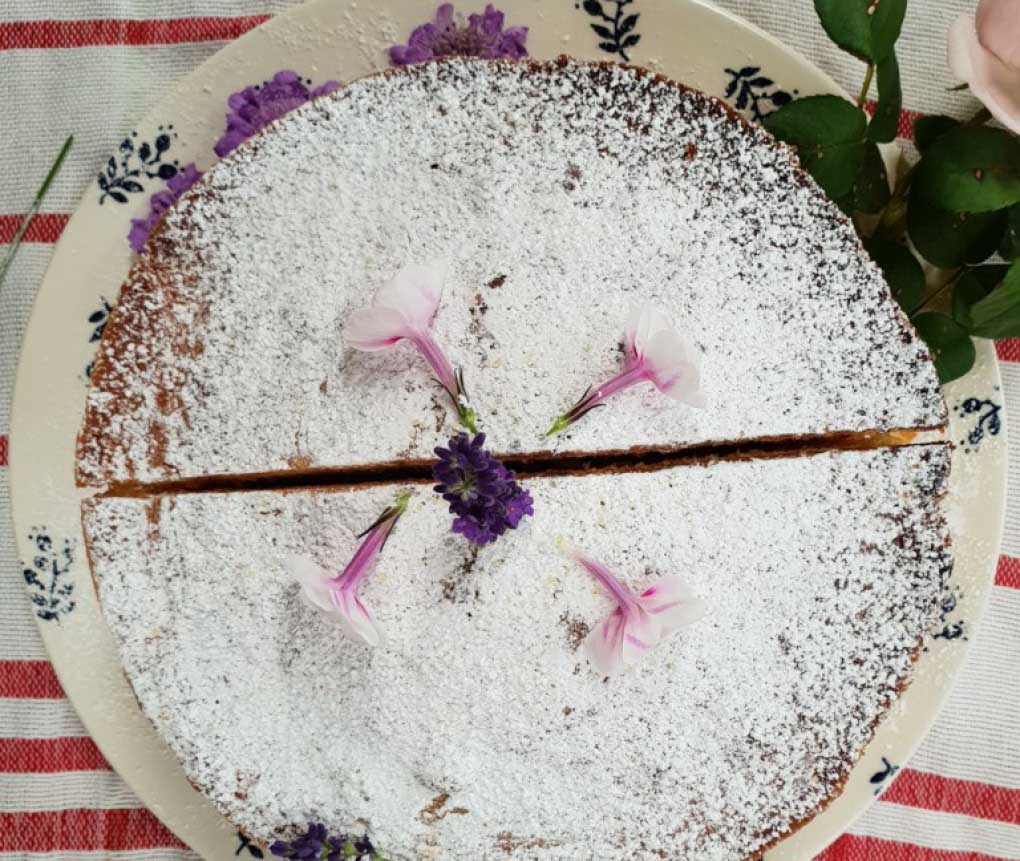

Endorsements
“I was a new writer when I was accepted to RWI 2018: what I needed from the retreat was an insight into whether I had what it takes to be a writer, and, if so, what it would take for me to become a good writer. After a short, but thrillingly intense, retreat, I had a) the confidence to think of myself as a writer, b) the elements of an action-plan for my future writing development, and c) a network of talented and supportive friends in the tutors, and participants who had shared the experience. The consistent emphasis on authenticity of voice, together with the eclectic range of visiting speakers, gave me perhaps my most profound learning from RWI i.e. an informed vocabulary appropriate for describing my own work, and for considering the work of writers across the wider genre of nature and rural writing. If any developmental experience is to be described as life-changing, for me this was it.”— Geoff, RWI 2018
“For me, the Rural Writing Institute was a dream opportunity: a perfect location, and the chance to learn craft from fabulous writers rooted in the land, as well as other accomplished and prominent practitioners of poetry and creative nonfiction. What I had not expected, but has proved equally powerful, was the immediate creation of a writing community characterised by profound mutual trust and fellowship. In those few days, we began friendships — across nation, gender, age, levels of experience, and multiple other differences — that will clearly endure. That such a group of colleagues and comrades was forged during the Institute is a tribute to the transformative generosity shown by Katy, James, and the Rebanks family. Their trust, openness, respect, and genuine joy in the work they do spread outward to all of us. The seeds planted and nourished there have already born rich crops of creative work and professional advancement.” —Nicola., RWI 2018
“Leaving the Rural Writers Institute, I felt connected to a long history of authors inspired by their relationship with the land. James, Kathryn, and the assembled guest speakers, helped navigate us through this history and consider where the form might grow. We learned in the hay barn, by the beck, and even whilst mending a dry stone wall. I can’t think of a more perfect way to engage with literature and the land. RWI gave me confidence to explore new avenues of my craft and, best of all, brought together a diverse community of passionate writers.” —Lauren, RWI 2018
“In spring 2018, a serendipitous click on a tweet led me to the RWI 2018 website and Wendell Berry’s words ‘Telling a story is like reaching into a granary full of wheat and drawing out a handful. There is always more to tell than can be told.’ Berry’s words encapsulate perfectly my memories of that gloriously sunny weekend spent on the Rebanks’ lake district farm, with Katy and Polly, Ed and Rob, plus through the magical ether, David, Tara and Jane. Oh, and the cohort of intimate strangers who, after that intense weekend, a Slack app group, a 2019 reunion and book anthology, a forthcoming 2020 gathering, I feel I can now call friends.” — Liz, RWI 2018
To further discuss contact gardens@kathrynaalto.com





